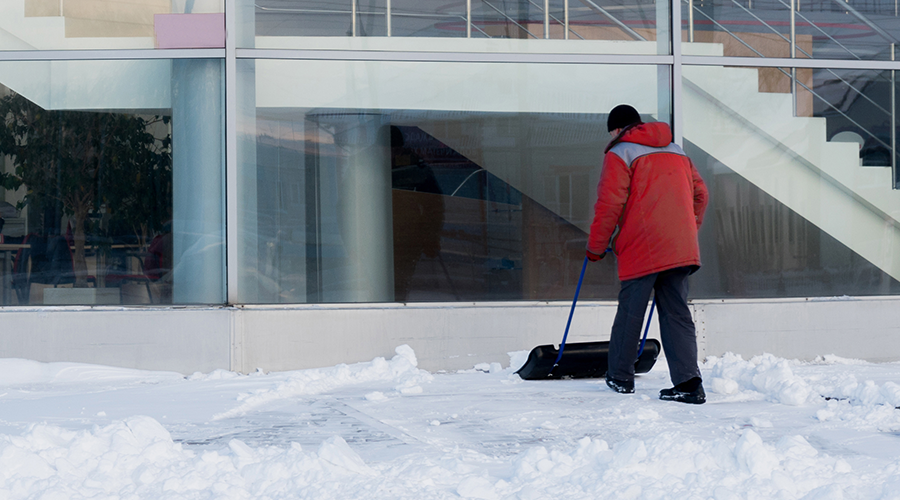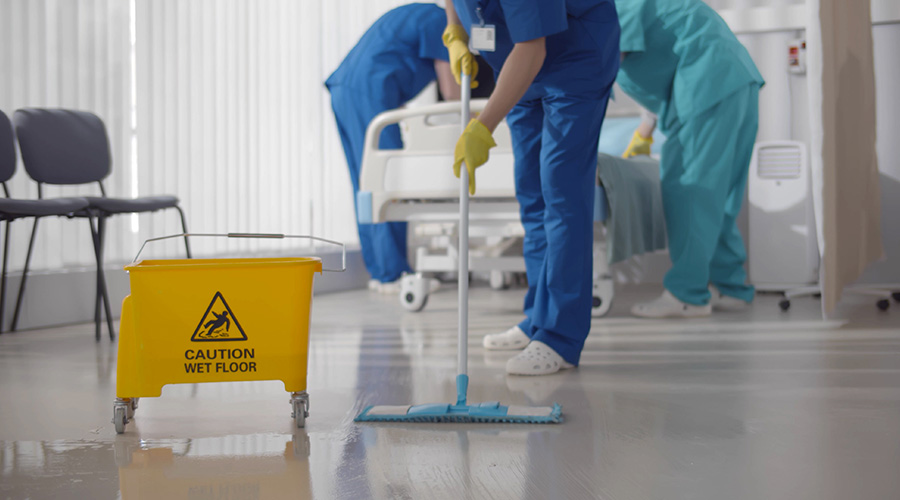As temperatures begin dropping, healthcare facility managers are preparing for the seasonal impacts on their facilities. Ahead of the upcoming season, weather analysts are warning the strong El Niño pattern will cause unpredictable winter weather patterns. This means managers will need to have plans in place for multiple potential scenarios.
Winter weather often leads to deep freezes and severe storms, which create increased hazards for workers. As managers brace for colder weather, workplace safety must remain top of mind as they assess weather-related risks, establish safety protocols and plans and implement continued training programs to ensure they remain compliant.
Assess weather-related risks
To keep facility staffs safe this winter, managers need to proactively address winter health and safety concerns before they cause harm, which starts by identifying top hazards. Common risks include cold stress, working near downed power lines and slippery surfaces, according to the U.S. Occupational Safety & Health Administration (OSHA). With general fall protection topping OSHA’s list of violations for the past fiscal year, managers need to prioritize tactics to prevent slips due to ice or snow that is tracked inside facilities.
Hazards in and around healthcare facilities vary based on location. For example, managers and staff in the Northeast and Midwest are accustomed to handling heavy snowfall, ice and storms. But Southern hospitals also need to have strong winter weather protocols in place to keep workers safe as climate change causes the polar vortex to expand as far south as Texas and Florida. These states were surprised by the severe winter weather in 2021 and 2023, which substantially affected their ability to operate.
Establish safety protocols, emergency plans
Proactive responses are at the heart of effective winter safety strategies for healthcare facilities. After identifying the top risks for their facilities, managers need to establish procedures and provide necessary resources to support associates in maintaining a safe environment.
As part of the planning process, leaders should consider the way winter weather is likely to impact their teams as a whole. Similar to the patients seeking care, healthcare facilities workers need a safe route to commute to and access the facility. OSHA recommends managers urge employees to use caution while driving to work and ensure all access points around the facilities are clear of snow and salted when icy.
While each situation requires a level of flexibility, managers should standardize processes to help associates know exactly how to communicate with one another and respond. Ahead of winter storms, managers should evaluate their all-hazards plans, which include consistent procedures for the early stages of an emergency, from notifying team members and partners to coordinating resources.
Within the plan, having defined levels of response supports the team in knowing exactly how to respond. For example, a Level 1 response might mean the facility has the resources needed to handle the situation, while a Level 3 response would designate a significant impact on operations and need for outsourced resources. Partnering with a private meteorology service provider also can help inform the team of when and the way the weather will impact the area and whether evacuation is necessary.
Implement effective training and compliance
Mitigating winter weather risks is only possible when the entire staff understand and follow through with safety considerations and response tactics. With the right training and resources, managers can equip their teams to keep the physical environment safe during cold weather and winter storms.
Staff should be familiar with the specific steps for reporting and responding to potential issues before they arise. Especially in regions where freezing temperatures are less common, staff working outdoors need to be aware of how to protect themselves from cold stress, which can lead to frostbite and hypothermia. These associates will need to be able to recognize early symptoms, select proper clothing and know when to take breaks so they can warm up.
Compliance assurance is not only important for keeping up with regulations but also for ensuring safe working conditions, especially when winter weather presents increased hazards. To create a culture of compliance, managers must establish clear expectations and explain the reasons they are important. When compliance is ingrained into daily operations, staff will be more prepared to keep themselves and their teams safe this season.
While managers prepare their facilities to meet pending seasonal needs, one of the central considerations must be effective workplace safety strategies. Promoting wellness and supplying staff with the tools and training they need should be a top priority this season to prevent harm during harsh weather conditions.
Scott Cormier is vice president of emergency management, environment of care and safety with Medxcel, an integrated facilities management organization.

 Building Sustainable Healthcare for an Aging Population
Building Sustainable Healthcare for an Aging Population Froedtert ThedaCare Announces Opening of ThedaCare Medical Center-Oshkosh
Froedtert ThedaCare Announces Opening of ThedaCare Medical Center-Oshkosh Touchmark Acquires The Hacienda at Georgetown Senior Living Facility
Touchmark Acquires The Hacienda at Georgetown Senior Living Facility Contaminants Under Foot: A Closer Look at Patient Room Floors
Contaminants Under Foot: A Closer Look at Patient Room Floors Power Outages Largely Driven by Extreme Weather Events
Power Outages Largely Driven by Extreme Weather Events